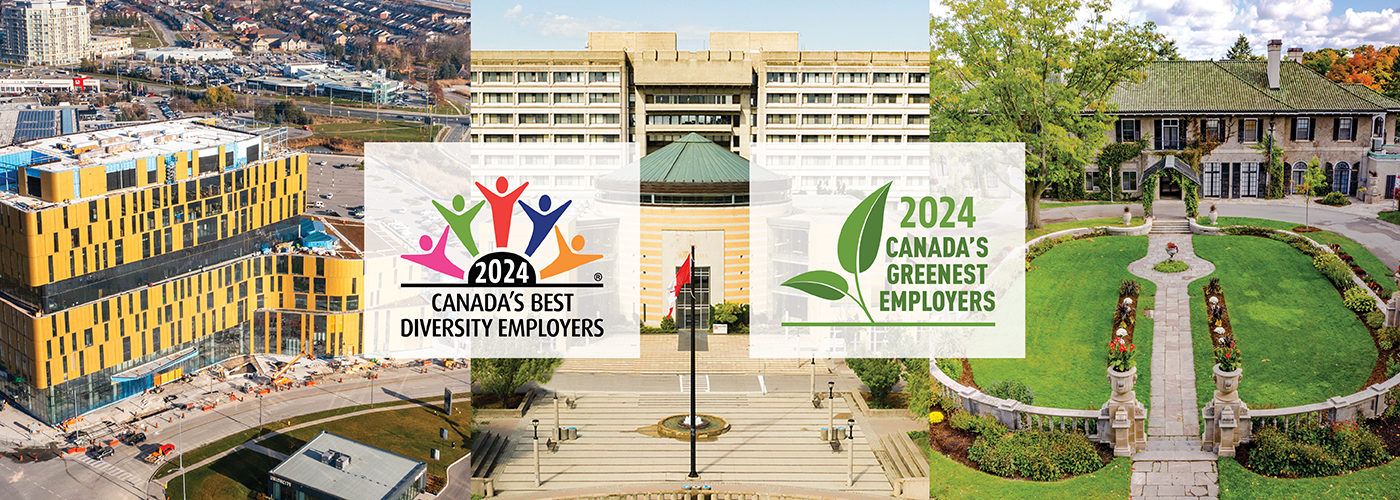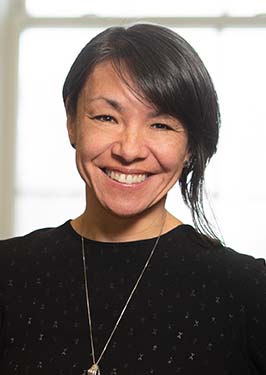
York University leads as one of Canada’s greenest and most diverse employers
Living its values. For the first time, York University achieves two top designations as Canada’s greenest and most diverse employer for 2024.
This is the 12th consecutive year York has made the cut for Canada’s Greenest Employers and selected by Mediacorp Canada Inc., organizers of the annual Canada’s Top 100 Employers project.
The honour recognizes employers who lead the nation in creating a culture of awareness for the environment and whose sustainability practices have become part of their public identity. It include developing unique initiatives and programs, and successfully reducing their footprint with the help of employees.

In addition, York also received Canada’s Best Diversity Employers 2024 award announced March 4, a first for the University, which recognizes exceptional workplace diversity and inclusiveness programs across the country. Not only has York launched a Decolonizing, Equity, Diversity and Inclusion (DEDI) Strategy, but its DEDI values are infused into its Framework and Action Plan on Black Inclusion and the Indigenous Framework.
“Being recognized as Canada’s Best Diversity and Canada’s Greenest Employers is possible because of the values and dedication of York employees, staff and faculty alike,” says Laina Bay-Cheng, interim vice-president of Equity People and Culture. “I hope York and all our colleagues can take pride in how hard we work to be a place where so many different people, all taking so many different paths in their careers and lives, can thrive and feel like they belong.”
York continues to be a champion of sustainability. A year ago, the University hired its first chief sustainability office in its Office of Sustainability to focus more attention on its sustainability goals and actions. Since then, it has shortened its initial goal to reach net-zero emissions by a decade, now 2040. It also started a $1 million Sustainability Innovation Fund to provide funding to faculty, staff and students to pursue projects to advance climate action – which supports the United Nation’s (UN) Sustainable Development Goal 13) on York’s three campuses toward positive change.
“York’s collaborative and holistic approach to sustainability has played a large part in why we continue to excel in sustainability leadership. This work wouldn’t be possible without the support of students, faculty, instructors and staff,” says Mike Layton, York’s chief sustainability officer.

A University-wide challenge to elevate York’s contributions to the UN’s SDGs 17 (global partnerships for sustainable development) was also included in its University Academic Plan 2020-2025. With two TTC stops on its Keele Campus and an investment in using electric golf carts, bikes, and hybrid and electric vehicles, York has helped its community move away from single-occupant trips to more sustainable options. Its ZeroWaste program has increasingly diverted waste from landfill sites for more than three decades, reaching 70 per cent of waste diversion.
York also has an Eco-Campus dedicated to teaching and researching neotropical conservation, eco-health, community well-being and sustainable livelihoods through it's 400-acres Las Nubes Forest Reserve in Costa Rica.
York’s continued commitment to sustainability and diversity, is reflected in the 2023 Times Higher Education (THE) Impact Rankings, where it ranked among the world’s top 40 universities out of more than 1,500 for advancing the SDGs. That includes being ranked 21st in the world for SDG 1 – No Poverty, 25th in the world for SDG 10 – Reduced Inequalities, and 12th in the world for SDG 11 – Sustainable Cities and Communities.
As Layton says, “Community adoption of green initiatives and a continued desire to support the University in expanding its impact to create a more sustainable future is integral. This recognition is a reflection of community efforts.”
It’s a commitment that will help foster a greener, more diverse future.
